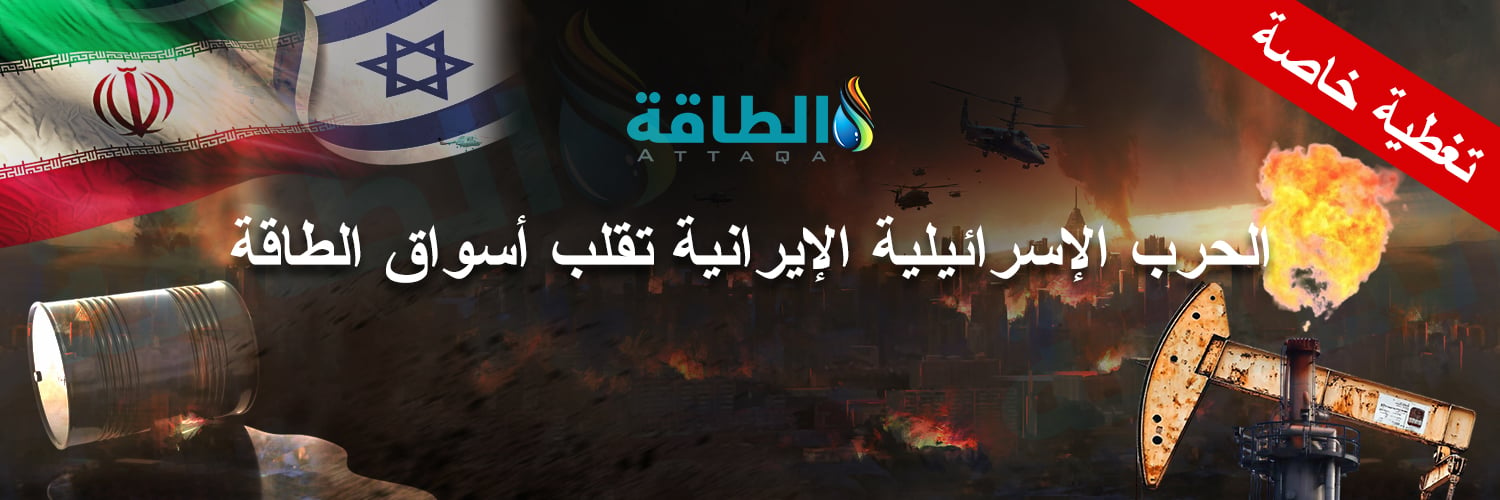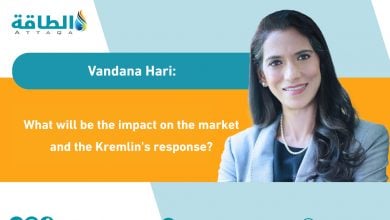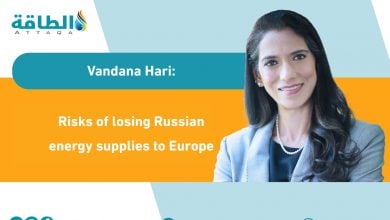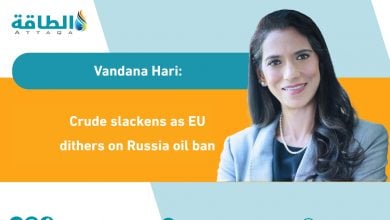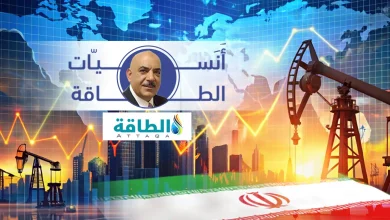EU needs to think through Russian oil ban carefully
Vandana Hari
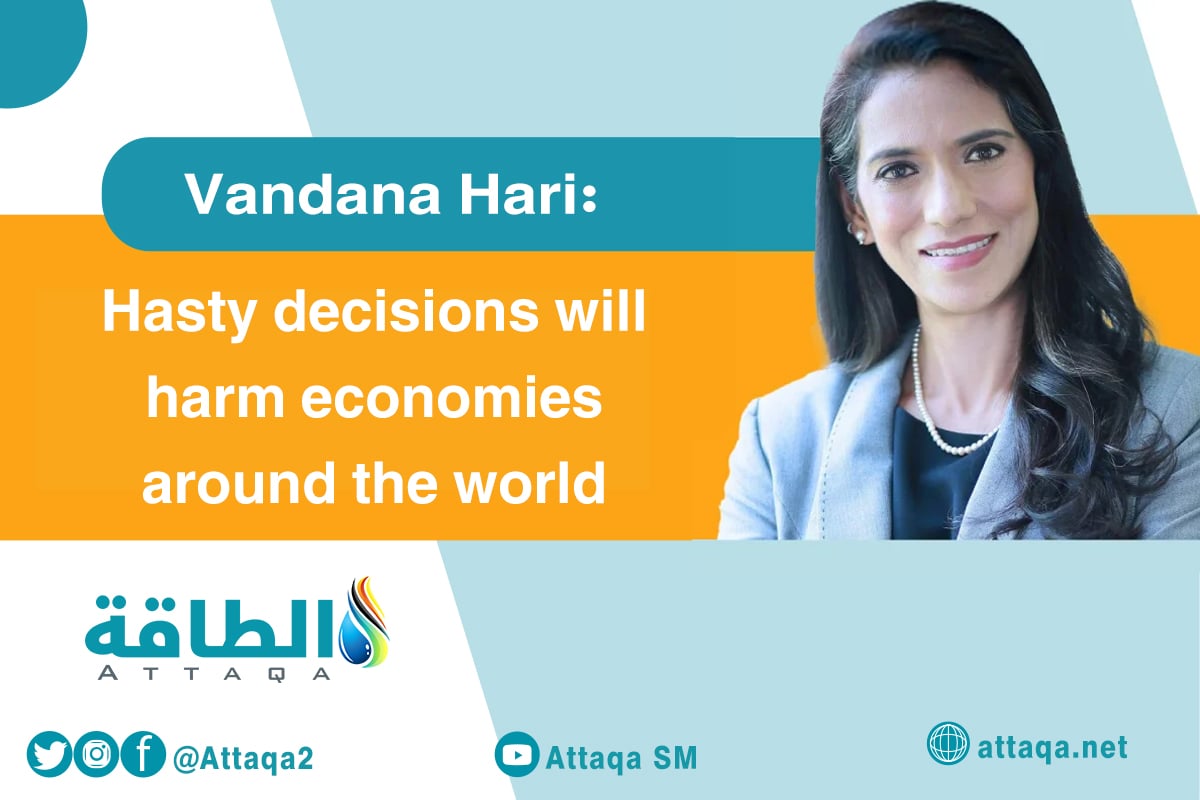
Moscow’s continued assault on Ukraine in spite ofseveral rounds of Western sanctions is once again pushing the European Union to consider banning Russian oil imports, triggering fresh turmoil in the energy markets.Such a stepcould boomerang badly – not only on Europe’s economy, but around the world.
The EU earlier this month agreed to completely phase out purchases of Russian coal by mid-August. So far, the 27-nation bloc hadsteered clear of tinkering with imports of Russian oil and gas, given its heavy dependence on the inflows and cognizant of the fact that replacing them with alternative supplies would be a long and arduous process.
Thoughan oil embargo routinely cropped up in discussions and was recently publicly proposed by French President Emmanuel Macron as a way to inflict maximum pain on Moscow, it failed to garner unanimous support within the EU. Germany, Hungary, Austria and Italy were the main opponents, with Poland and the Baltic states backing such a ban.
The EU would undoubtedly be well-advised to continue curtailing its heavy dependence on Russian energy supply if it is to have greater leverage in the current or future conflicts with Moscow. But the leaders in Brussels need to understand that taking an impulsive decision on energy supplies without due diligence on the consequences and potential offsets willalmost certainly backfire on their economies and may not even deter President Vladimir Putinfrom continuing to chase his goal in Ukraine.
The EU depends on Russia for nearly 30% of the oil it consumes and 40% of the natural gas it uses.
 Energy weaponization.. a knife that cuts both ways
Energy weaponization.. a knife that cuts both ways
An import-dependent consumer cannot weaponise energy with embargoeswithout riskingthe supplier retaliating in kind. Putin has already hung a question-mark over Europe’s gas supply security by insisting on a switch in payment from euros to rubles.
He could jeopardise much more by curtailing flows to Europe.
The EU’s decision to phase out Russian coal imports has already caused prices of the commodity to soar to all-time highs in recent days. Emerging-market economies with lower pain thresholds for prices are already girding for power shortages in the upcoming summer.
The US-EU economic sanctions against Moscow, coupled with a boycott of Russian oil by several majors and Western companies, are keeping oil prices elevated despite an unprecedented 180 million barrels of emergency oil reserves pledged to be released by the International Energy Agency member countries over May-October.
Benchmark Brent futures, which had surrendered nearly $27/barrel or two-thirds of their peak Ukraine war fear premium as of April 11 after the IEA oil stocks release announcements, had reclaimed half of it by April 14 on news that the EU was again eying an oil embargo.
Some Russian oil rejected by the West may find a home in China and India, but freight and insurance economics won’t always work in favour of rerouting the flows, which means an EU embargo will inevitably lock more Russian oil out of the market. Coupled withworries over Putin striking back by restraining gas, it will send fear premium rocketing across the energy complex.
Even if the EU agrees on a months-long time-frame to phase out Russian oil imports rather than a more immediate ban, it would likely set up an immediate scramble among the region’s importers to secure alternative supplies, leading to a worsening chaos and rocketing prices much before any relief that may follow if Russia is able to find other buyers for all its displaced oil.
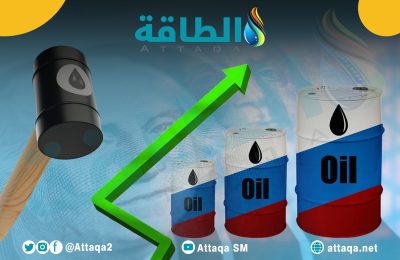 Dangerous fallacies around alternatives
Dangerous fallacies around alternatives
Finally, the EU needs to beware of some dangerous fallacies propping up passionate political arguments for the bloc to slam the door shut on Russian energy, suggesting that alternatives will quickly and easily fall into place.
The US, which is contributing two-thirds of the IEA emergency reserves release, may be able to unleash some more crude and not worry about buying it back, being a net oil exporter.
But the other members will be stretched. Fundamentally, this is an asymmetric and inadequate response to a secular supply shortage.
The OPEC/non-OPEC alliance may have limited ability to ramp up supply but it simply cannot keep up with every incremental coal, oil and gas supply disruption that may be caused by any further EU sanctions and bans. Besides, a bigger bump in supply than what OPEC+ is currently managing will need rejigging member quotas and alienating Russia, threatening the group’s cohesion.
Germany could potentially lower its gas needs by halting the remaining phase-out of nuclear power plants. But the utilities are opposed, saying it would be too risky and they have not secured the necessary feedstock. France is bolstering its nuclear power capacity, but it will take time and other EU members are unlikely to jump on the bandwagon.
Some European countries are already resorting to heavier coal usage. Telling them to simply ratchet up coal even more if needed is not only bad for the environment and the carbon price in power bills, but also risks policy paralysis, apart fromconfusing and stymieing decarbonisation efforts.
Europe is already turning to the US, Qatar, Algeria and other LNG exporters, seeking more gas. But the producers will need time and investment to raise production and export capabilities. Europe will need the same to boost its import and redistribution infrastructure. Suggesting that Europe can start rejecting Russian gas because of the promise of other options beinglined up for unspecified volumes sometime in the futureis laughably naïve.
As for renewables, they are an important part of the green energy transition, but severely limited in scalability, especially for plugging a gap as big as what might be caused by the loss of Russian coal and gas supply to Europe. Throwing the option into a bundle of alternatives without any concrete figures on how much of gas or coal use could be realistically replaced by wind and solar power and how long that would take, is reductive and irresponsible.
Sure, Europe is being driven to take quick and harsh measures against Putin over Ukraine. But energy trade should not be the battleground – the destruction will almost certainly overshadow anywins.
* The writer is Founder and CEO of Vanda Insights, which provides macro-analysis of the global oil markets.



